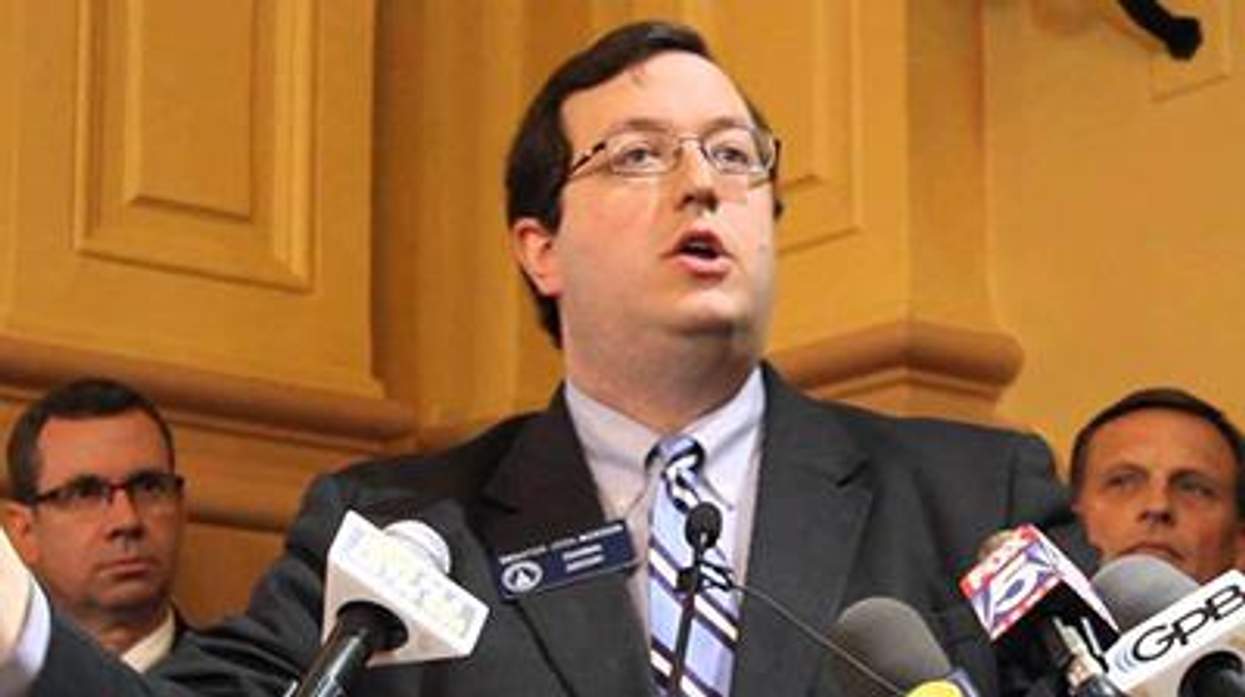It's too late to stop Indiana's new "turn-away-the-gays" legislation. Governor Mike Pence has signed it into law. But nearly half of the states are considering similar bills, some of which go even further.
If there's any encouraging news, it's that passage of Indiana's bill has generated a significant outrage that could translate into public pressure in other states to water down their discriminatory bills. This year, Georgia lawmakers, for example, seemed poised to pass their own license to discriminate bill, but the bill got tied up in committee last week.
More importantly, Indiana's example might also apply pressure on businesses to speak out against such legislation, which proved an effective tool in the arsenal against these antigay bills in Arizona last year.
Arizona's Republican governor Jan Brewer faced enormous backlash from the business community and others when considering signing a similar piece of legislation last year. Apple threatened to reconsider plans for expanding to the state and the NFL publicly worried about effects on the Super Bowl, for example, and Brewer vetoed it. Then a number of states backed away from their own plans.
But the proposals never disappeared entirely, just getting put on the back burner. The states considering "religious refusal" legislation span the country, from Maine to Hawaii. Here's a full list, according to the Human Rights Campaign:
Western: Hawaii, Nevada, Montana, Wyoming, Utah, Colorado
Midwest: South Dakota, Kansas, Missouri, Indiana, Michigan
South: Oklahoma, Texas, Arkansas, Missouri, Tennessee, Alabama
East Coast: Maine, West Virginia, Virginia, North Carolina, South Carolina, Georgia, Florida
None of these bills actually come out and identify LGBTs as the target of discrimination. Most are far more subtle: they restrict the state from enforcing laws that "substantially burden" religious expression.
And a handful of states are going even further by removing the "substantially." A bill in Texas would allow anyone to sue who considers their religious freedom impeded in any way.
Many of the bills are advancing swiftly, with little organized opposition beyond public outcry and press releases. Although the bill failed in Georgia last week, for example, another passed the Arkansas Senate. And after Arizona faced huge backlash last year, Mississippi went ahead with passing its own bill anyway.
Where they're made law, it's likely to spark federal constitutional challenges. But that will be a slow and expensive process: first, civil rights groups have to find a compelling plaintiff who has been injured by discrimination. Then the case would need to work its way through the federal court system, likely over the course of years.
And there's no guarantee of an entirely favorable ruling from the Supreme Court, which recently ruled that Hobby Lobby is exempt from certain laws on the basis of the owners' religions beliefs.
The "Religious Freedom" bills are part of a larger backlash against the advances of marriage equality. A bill in Oklahoma would promote "ex-gay" camps, and bills would invalidate local nondiscrimination laws in Texas, Mississippi, and West Virginia.
In addition, 12 states are considering legislation that would subject trans people to increased discrimination: Nevada, Colorado, South Dakota, Texas, Oklahoma, Missouri, Minnesota, Kentucky, Florida, South Carolina, Connecticut, and Massachusetts. Kentucky, for example, was considering a "bathroom vigilante" measure that would issue $2,500 bounties to residents who reported trans people for using bathrooms. That measure was voted down last week.




































































Charlie Kirk DID say stoning gay people was the 'perfect law' — and these other heinous quotes